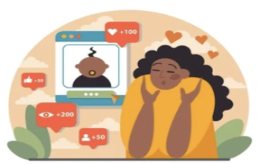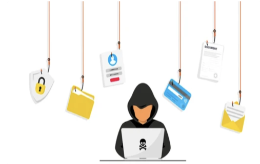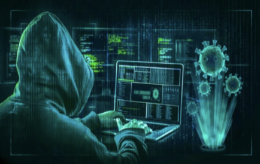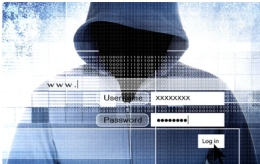What is Social Media Theft?
23 Jun, 2023
Min read

Social media platforms have become an integral part of our lives. Between Snap Chat, Instagram, Facebook, amongst many more, it is easy to stay connected with friends and family. Despite the positive impact of social media, it also has its dark side. As we immerse ourselves in the virtual realm, it is vital to be aware of the potential risks associated with these platforms. One of the most concerning threats is the theft of personal identity.
Social Media theft is when someone uses someone else’s information to create a fake social media account.
How can someone steal your identity from your social media presence?

Oversharing:
Social media is a place where we can share updates about our lives. However, without realising it, we could be sharing valuable information to potential identity thieves. Is your full name in your account? Did you make a post of you celebrating your birthday? If you are a married woman, maybe you shared a photo and tagged your mom, unknowingly sharing your maiden name. These bits of personal information can be exploited to piece together your identity.

Phishing Attacks:
We are all, probably, aware of what phishing attacks are now. If not, they are attacks disguised as texts, emails, or phone calls from seemingly trustworthy sources. Sometimes it is easy to spot a phishing attack as there may be spelling mistakes. But with the rising popularity of AI machines such as Chat GPT, which can create well-written phishing attacks, we will need to be extra vigilant when we receive emails, texts, or phone calls asking for personal details.

Weak Privacy Settings and Data Breaches:
Social media platforms usually offer privacy settings to control the visibility of your information. If you have your profiles on private, only people you approve will be able to see your posts. However, many users are unaware of these settings and fail to configure them. This leaves them exposed to strangers and increases their risk of identity theft. Even if you have your profile on private, the social media platform can be targeted by hackers. This could result in massive data breaches that can compromise user information.

Public Wi-Fi:
When using social media on a public Wi-Fi network, it is important to exercise caution. Unsecured networks can be compromised by hackers. If you log into a social media account while on a public Wi-Fi network, it is possible that hackers can intercept data and gain access to your personal accounts.
How to prevent our personal information from being exploited:
- Limit the personal information you share on social media platforms.
- Adjust your privacy settings to ensure that only people you approve can access your profile and posts.
- Be cautious of unsolicited messages or emails, especially those requesting sensitive information.
- To ensure a link is safe, use our link checker before opening it.
- Use strong, unique passwords for your accounts and enable two-factor authentication.
- Avoid using public Wi-Fi networks. If you must use one, do not log into an account as this will show your password to potential hackers.
- Be vigilant about suspicious or fake accounts, and report them.
Social media has become a part of our daily lives. It is unfortunate that some individuals would use our social media presence against us. But, by understanding the vulnerabilities and implementing necessary precautions, we can navigate the digital landscape in a safer fashion.


.jpg)
